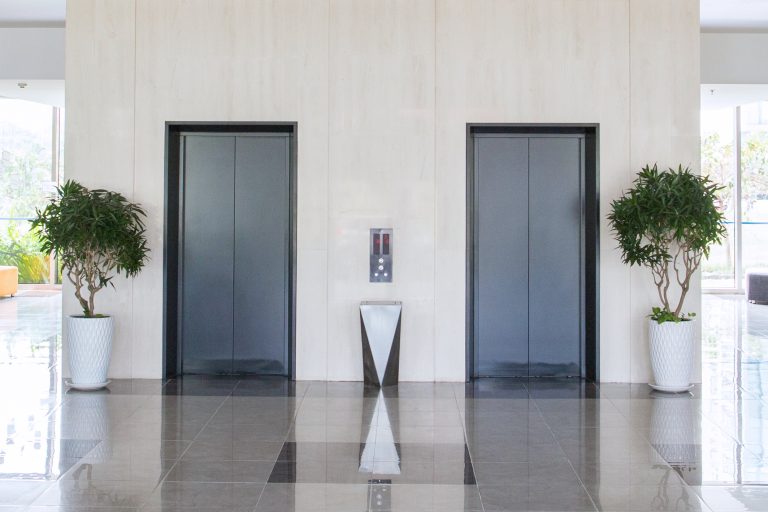The capital budget sets the financial groundwork for all subsequent phases of a project. If it overlooks sustainability aspects, developers risk dealing with unplanned expenses later—either through retrofits or compliance penalties. Conversely, incorporating green initiatives from the start can result in:

Reduced Operating Expense
Energy-efficient systems and sustainable materials often deliver lower day-to-day running costs.

Long-Term Resilience
Developments designed with climate goals in mind are better prepared for future regulatory changes and environmental pressures.

Strong Investment Potential
Increasingly, investors, tenants, and buyers prioritise sustainable buildings, adding value and broadening market appeal.
A Cost Consultant is indispensable in balancing these elements. By thoroughly analysing benchmarks, regulations, and project-specific conditions, they ensure:

Accuracy
Establishing a budget that fairly reflects the client’s vision and meets all relevant design and environmental criteria.

Forward Planning
Accounting for upcoming legislation and industry-wide shifts towards net zero, both regionally and globally.

Lifecycle Thinking
Evaluating not just the initial build costs but also the operational and maintenance requirements that follow.
This holistic perspective is particularly vital as climate-related expectations tighten, requiring developers to show tangible reductions in energy consumption and greenhouse gas emissions over a building’s entire lifespan.
Many local authorities now require developers to show how a project’s operating and maintenance costs will be affected by capital decisions. This aligns with overarching goals, such as the World Green Building Council’s call to reduce embodied carbon by 40% by 2030 and achieve 100% net zero carbon in buildings by 2050. As construction currently generates approximately 37% of global emissions, the stakes are high.
Why Lifecycle Costs Matter

Initial Build
Often just 2%1 of a building’s total cost over 25–30 years.

Operational & Maintenance
Approximately 6%1 of lifetime costs—but can be greatly influenced by design decisions around energy and water usage, system durability, and waste management.

Staffing and Other Costs
Sometimes up to 92%1, showing that efficient building systems can have a profound effect on wider expenses.
With so much at stake beyond the initial construction, prioritising sustainability features such as LED lighting or advanced HVAC technology can yield considerable savings over time.
Examples of Sustainable Budgeting

LED Lighting & Smart HVAC
Although these may cost more upfront, they significantly reduce energy consumption. Over the building’s life, the savings often outweigh the initial investment.

High-Quality Lift Systems
A more durable and efficient lift may lower maintenance expenses and downtime, representing better value in the long run—particularly where occupant comfort and operational continuity are paramount.
By incorporating these elements into the budget from the outset, developers avoid the unpleasant surprises of retrofitting or scaling back features to meet sustainability criteria at a later date.
At AESG, we recognise that cost management and sustainability are intertwined. Our multidisciplinary approach ensures that your capital budget is shaped by both rigorous financial analysis and a deep understanding of environmental drivers. We offer:
Developers who integrate sustainability into their initial budgeting process not only protect their projects from regulatory and financial risks, but also position themselves as forward-thinking, responsible market leaders. By working closely with a trusted Cost Consultant, you can be sure your capital budget reflects both immediate goals and the demands of a rapidly evolving industry.
Reach out to Daniel King and the AESG team to discover how robust capital budgeting and integrated sustainability strategies can help ensure your next development meets both financial and environmental goals.

Regional Director of Cost Management, AESG
Daniel King joins AESG as Regional Director, Cost Management. He has over 20 years’ experience as Cost Consultancy Director across KSA, UAE, Qatar, and the UK. He has been responsible for managing multimillion USD business operation in KSA and has delivered multibillion USD portfolio of projects globally.
He has a strong track record in driving new client leads, increasing revenue and margin. He is Commercially biased with the ability to diversify into project management. He is a strong advocate of inclusivity and knowledge sharing to build collaborative culture. His approachable and engaging communication style helps him establishing long-standing business relationships.
With an MSc Construction Management from Sheffield Hallam University, UK and as a member of the Royal Institution of Chartered Surveyors, UK he brings with him a wealth of knowledge and expertise in commercial and cost management.
For further information relating to specialist consultancy engineering services, feel free to contact us directly via info@aesg.com

ISO 27001:2022
ISO 9001:2015
ISO 14001:2015
ISO 45001:2018
601-608
The offices at Ibn Battuta Gate,
Jebel Ali 1-Village
PO Box 2556
Dubai, United Arab Emirates
305 Mermaid House
2 Puddle Dock
London, EC4V 3DS
United Kingdom
T / +44 (0) 208 037 8762
Haibu Space, Abu Dhabi Mall
1st floor, Office 37
Tourist Club Area
Abu Dhabi, United Arab Emirates
T / +971 (0) 2 201 2527
9391 Wadi Al Thummamah
2444 Al Olaya District
PO Box 12214
Riyadh, Kingdom of Saudi Arabia
T / +966 (0) 112 278 288
111 Somerset Road
#08-10A, 111 Somerset
Singapore 238164
11th Floor, Office 1101
2 Long Street
Cape Town 8000
Western Cape, South Africa
T / +27 (0) 21 137 6444
8 Parramatta Square
49th Floor, Office 117
Parramatta, Sydney
New South Wales 2150
Australia
T / +61 (0) 2 8042 6817
Regus Rialto, West Podium
Level Mezzanine 2 (M2)
525 Collins Street
Melbourne, Victoria 3000
Australia
Regus Egypt, East Lane
1st Floor, Office 130
Plot number B-340
New Cairo 1
Cairo Governorate 4740003
Egypt
Office 37, Haibu Space
1st floor, Abu Dhabi Mall
Tourist Club Area
Abu Dhabi, United Arab Emirates
T / +971 (0) 2 201 2500
9391 Wadi Al Thummamah
2444 Al Olaya District
PO Box 12214
Riyadh, Kingdom of Saudi Arabia
T / +966 (0) 112 278 288
111 Somerset Road
#08-10A, 111 Somerset
Singapore 238164
WeWork, 80 Strand St
Cape Town City Centre
Cape Town, 8001
South Africa
T / +27 21 137 6444
49th Floor, Office No.117
8 Parramatta Square
Parramatta, Sydney
New South Wales 2150
Australia
T / +61 (0) 2 8042 6817
Regus Rialto, West Podium
Level Mezzanine 2 (M2)
525 Collins Street
Melbourne, Victoria 3000
Australia
Enawalks, 4th Floor, Office 417
Leaders International College Road
2F97+6VJ New Cairo 1
Cairo Governorate 4724242
Egypt
T / +20 15 01692187